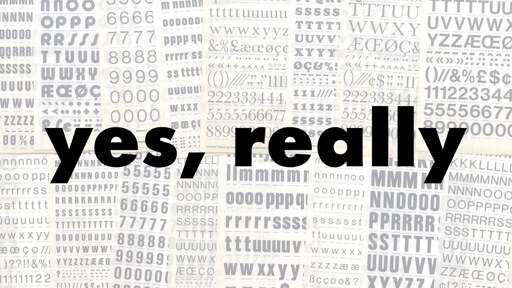- 85 Posts
- 456 Comments
Looks interesting, thanks.
I might try that. I have to use windows through my employer, which is really where the need lies. I may try to set up WSL.
I’ve had a couple conversations on here about FOSS RCS and it looks like it’s just not possible because of Google’s obstruction. Pretty disappointing.
probably because FOSS devs think SMS needs to die, and I agree
Be that as it may, people send 23 billion text messages every day. If you’re at all involved with the public, it’s absolutely unavoidable.

 4·9 days ago
4·9 days agoOBS is absolutely the best software in the field.

 8·9 days ago
8·9 days agoI feel the same. It’s my daily driver for about 6 months now in a professional setting with high demands. I have kept the Microsoft suite (and have not yet transitioned Powerpoint). When I go back to compare I can’t stand all the needy Microsoft interruptions getting in my way.

 4·16 days ago
4·16 days agoI don’t know the answer, but you have perfectly captured the spirit of this community. Following.

 1·25 days ago
1·25 days agoBy the same argument, owning physical things is an unnatural state. For millennia, the idea of a human being owning a physical object was completely foreign.
People made tools and used them as necessary, then discarded them for another person to use. It’s only in the most recent 5% of human existence that private property had existed.

 8·1 month ago
8·1 month agoThis is great! I can’t do much other than cheerleading, but I’m definitely excited to hear about this. I use it every day.
These are normal reactions that a lot of people experience. It’s not easy to put yourself out there.
I think it’s healthy to spend time finding your “tribe” and putting as much effort into that as you put into interpersonal relationships. Find something to be your third place away from home and work/school.

 5·1 month ago
5·1 month agoOr specifically the parts of government that reside there. I see it especially used when there may be dissent in other parts of government.

 33·1 month ago
33·1 month agoI started out with an old laptop then eventually “upgraded” to a refurbished office surplus desktop. I highly recommend starting out on a project PC as a sort of proof of concept before investing any money into it. Even hosting the family media libraries, I have never had an issue with streaming video, etc. even with pretty dated hardware.
Also maybe microdots would be more effective. Not exactly pen and paper, but still analog. Hard to crack a code you can’t find.
Maybe something akin to a book code, although machine learning may be able to crack those by that time.
I am not a cryptographer so I have no idea really.
The Navajo did pretty well in WWII

 391·2 months ago
391·2 months agoAmerica is a nation of immigrants and mixed cultures. In the early 1900s, there was great pressure to acculturate to the “American” way of doing things. Immigrants changed their names, clothes, foods, and language to match the “mainstream.” There was a push to build a “colorblind” society.
By the 1960s-70s, younger people began to realize that “acculturation” really meant erasing cultural heritage and acquiescing to white, Anglo, male-dominated culture. So there was a movement to preserve, celebrate, and empower differences between people.
This gave rise to the Black Power movement, creation of the term “Hispanic” and the Latin American ethnicity, Women’s Lib, Gay Pride, and even the rise of pizza delivery chains (which was regarded as a somewhat exotic ethnic food at the time).
That tension continues in the USA between recognizing and celebrating cultural differences, and becoming a melting pot of many cultures becoming one.
I tried Navidrome, and it’s a plus because it is compatible with any Subsonic app, such as Tempo (FOSS) or Symfonium (paid, independent dev, highly rated).
In the end, I personally had some stability issues (probably because I don’t really know what I’m doing). I find that the music server options in Jellyfin are the best option for me, and there are some very solid apps as well. I use Finamp, although there is also Fintunes, which seems to have more active development (both FOSS).
The built-in music player in jellyfin is pretty solid too, which is especially useful for playing on a TV (family dance party anyone?). Jellyfish is already on every platform, and I never did find a good TV client for Navidrome.
I’m sticking around this thread to find out if there is a good music discovery option because I haven’t found anything remotely close.
Edit: both Navidrome and Jellyfin allow you to set up multiple user logins. I’ve found it’s much better to set up individual playlists and make them available to everyone.

 262·2 months ago
262·2 months agoThat’s not actually how DEI works.
DEI initiatives provide training to help people in organizations make less biased decisions and be more respectful and inclusive of people from various backgrounds.
For example, instead of hiring someone from the boss’s alma mater, they might hire someone from a HBC who is equally qualified and helps bring a different perspective. Or hire a native Spanish speaker for a bilingual position instead of someone who spent a year abroad in Barcelona.
I’m happy to show studies about why it is necessary to correct hiring biases, and how organizations benefit from the efforts.

 502·2 months ago
502·2 months agoSounds like depression. If you have some savings, it might be worth it to see a therapist to find out.















It sounds like you are an outlier. Believe it or not, it’s still one of the most popular messaging systems in the world. People send 23 billion text messages every day.
My job in life are public facing, so it is absolutely essential, whether I like it or not.